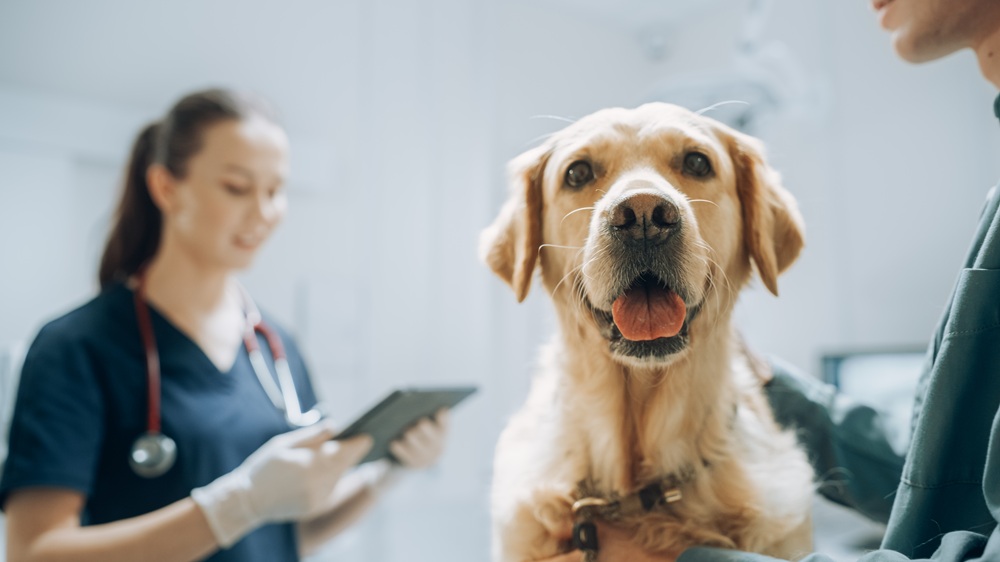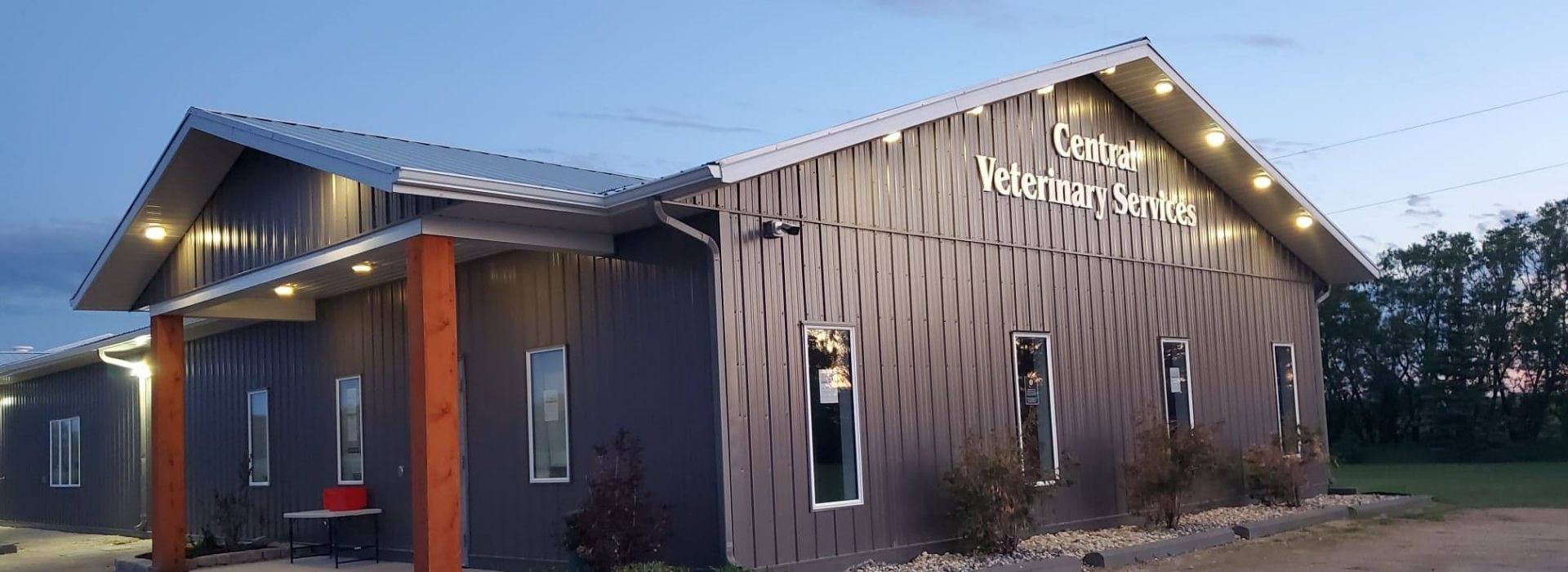Five reasons to visit a specialized Veterinary hospital
How a Veterinary Specialty Hospital Can Cure Your Pet's Ailments With Advanced Techniques
Veterinary specialty hospitals play a necessary duty in resolving intricate wellness problems in animals. They utilize sophisticated strategies and innovations that enhance medical diagnosis and therapy. With access to specialized services, pet dog owners can find tailored options for their animals' ailments. This raises crucial inquiries about the specific approaches used and the benefits they provide. Recognizing these aspects can notably influence an animal's healing journey.
Comprehending the Function of Veterinary Specialty Hospitals
Although medical care veterinarians give essential solutions for pet wellness, vet specialty hospitals play an essential function in addressing complex medical problems that require sophisticated diagnostics and therapy. These centers are furnished with specialized technology and knowledgeable professionals that concentrate on details areas of vet medication, such as cardiology, neurology, and oncology.
Veterinary specialty hospitals promote a collective approach, usually working in conjunction with a pet's primary vet to develop detailed care plans. They supply accessibility to advanced imaging techniques, such as MRI and CT checks, which are not normally available in common clinics - Learn More. Furthermore, these hospitals offer extensive treatment devices for seriously sick pet dogs, guaranteeing continuous tracking and assistance
Specialized Services Used by Veterinary Professionals
Veterinary professionals provide necessary solutions that enhance animal health care, especially via advanced diagnostic imaging methods. These tools enable accurate assessments of complex medical conditions, causing extra reliable targeted therapy strategies. By incorporating these specialized solutions, vet hospitals can greatly improve patient results and general wellness.
Advanced Diagnostic Imaging
Advanced analysis imaging plays a necessary function in modern vet medication, allowing experts to obtain detailed insights right into a pet dog's wellness. Techniques such as X-rays, ultrasound, computed tomography (CT), and magnetic vibration imaging (MRI) permit vets to visualize inner structures without intrusive procedures. These advanced imaging techniques help in diagnosing a selection of problems, from tumors and fractures to organ problems. By supplying clear photos, they boost the precision of evaluations, which is important for effective treatment preparation. Additionally, specialized vet radiologists translate these pictures, making sure that subtle concerns are not forgotten. Eventually, advanced analysis imaging is critical in delivering considerable care, as it enables early discovery and intervention in a pet's medical concerns.
Targeted Treatment Strategies
Targeted therapy plans are vital for dealing with the specific health and wellness needs of pet dogs, making certain that each animal obtains customized treatment tailored to its unique condition. Veterinary specialists create these plans based on comprehensive assessments, consisting of sophisticated analysis imaging and lab tests. By concentrating on the specific pet's diagnosis, way of living, breed, and age, experts can suggest reliable therapies, varying from medication modifications to medical treatments. These strategies additionally incorporate follow-up care and monitoring to track the pet's progression and make necessary modifications. This approach advertises excellent outcomes and improves the general lifestyle for animals dealing with intricate health difficulties. Inevitably, targeted treatment plans represent a dedication to offering the greatest requirement of veterinary care.
Advanced Diagnostic Techniques for Accurate Diagnoses
As animals encounter significantly intricate wellness obstacles, the integration of innovative analysis strategies has actually ended up being vital for achieving exact medical diagnoses. Veterinary specialty hospitals use advanced imaging technologies, such as MRI and CT checks, to picture internal frameworks with remarkable quality. These modalities enable vets to determine irregularities that might not show up via conventional methods.
Along with imaging, progressed lab examinations, consisting of genetic and biomarker analyses, provide crucial insights right into underlying problems. These tests enable veterinarians to spot diseases at earlier phases, assisting in timely intervention (Learn More). Additionally, making use of endoscopy permits straight visualization of inner organs, aiding in the medical diagnosis of respiratory and stomach problems
Innovative Treatment Alternatives for Complicated Problems
Ingenious treatment choices for complicated problems in pets have emerged as a vital focus within veterinary specialty hospitals. Using innovative analysis tools, these centers enhance their capability to identify problems precisely and tailor suitable interventions. Additionally, the implementation of minimally invasive procedures and progressed rehabilitation methods offers pet dogs a much better opportunity at recovery with lowered discomfort.
Advanced Diagnostic Tools
While the landscape of vet medication remains to progress, cutting-edge analysis devices have emerged as crucial assets for resolving intricate conditions in animals. These advanced modern technologies, including electronic imaging, ultrasound, and molecular diagnostics, permit veterinarians to acquire precise info concerning a pet's health and wellness standing rapidly. As an example, high-resolution imaging strategies can reveal elaborate information of internal structures, allowing precise evaluations of conditions or injuries. In addition, hereditary screening provides understandings right into genetic conditions, guiding tailored therapy plans. By leveraging these cutting-edge diagnostic tools, veterinary specialty hospitals can enhance their capacity to determine disorders that might have previously gone unseen. Eventually, these improvements add to improved results and improve the general quality of care given to precious pets.
Minimally Intrusive Procedures
Developments in veterinary medication have paved the way for minimally intrusive procedures, which offer brand-new treatment choices for complex problems in family pets. These ingenious strategies, such as laparoscopy and endoscopy, enable veterinarians to perform surgeries with smaller sized lacerations, lowering injury and healing time. By using specialized video cameras and tools, vets can identify and treat problems like growths, food poisonings, and joint problems with precision. This approach minimizes discomfort and causes quicker recovery, enabling animals to return to their regular activities sooner. Vet services. Additionally, minimally invasive treatments often lead to less scarring and a lower risk of problems. As vet specialty hospitals take on these advanced techniques, family pet owners can really feel extra positive in their pets' treatment and total well-being
Advanced Rehabilitation Techniques
As veterinary medication advances, advanced rehabilitation techniques are becoming vital for handling complex conditions in animals. These approaches encompass an array of innovative therapy choices, including hydrotherapy, laser therapy, and physical therapy. Hydrotherapy utilizes water resistance to boost wheelchair and strengthen muscles, helpful for pets recovering from surgery or injury. Laser treatment advertises recovery by decreasing swelling and discomfort, cultivating quicker recuperation times. Physical therapy uses targeted workouts to enhance strength and flexibility, tailored to every pet's certain requirements. Furthermore, modalities like acupuncture and chiropractic adjustments can additionally sustain rehab by easing pain and boosting overall wellness. Veterinary specialty hospitals are increasingly incorporating these strategies, ensuring pets receive extensive treatment that resolves both psychological and physical recovery, inevitably improving their high quality of life.
The Importance of a Multidisciplinary Technique
A multidisciplinary method in veterinary treatment greatly enhances the therapy results for family pets, as it incorporates knowledge from various specialties to deal with complicated wellness concerns. This collective approach involves vets, experts, service technicians, and support personnel functioning with each other to develop complete therapy strategies customized to every animal's one-of-a-kind needs (Veterinary). By incorporating understanding from areas such as surgical procedure, internal medicine, oncology, and recovery, veterinarians can recognize underlying problems that may otherwise go unnoticed
Furthermore, this method fosters interaction amongst group members, making sure that all facets of a pet's health are thought about. For example, a family pet recuperating from surgery might take advantage of input from both a recovery and a cosmetic surgeon expert, bring about a more effective recuperation procedure. Eventually, a multidisciplinary method not only improves the quality of treatment however also improves the overall wellness of family pets, providing them with the finest chance for an effective recuperation and lasting wellness.
Cutting-Edge Technology in Veterinary Medicine

With the rapid evolution of innovation, veterinary medicine has actually accepted ingenious tools and strategies that substantially enhance diagnostics and treatment choices for pets. Advanced imaging modern technologies, such as MRI and CT scans, enable veterinarians to imagine interior frameworks with unmatched clearness, helping in accurate diagnoses. Furthermore, minimally invasive surgical strategies, supported by robotic-assisted systems, improve accuracy and decrease recovery times for family pets.
Telemedicine has actually likewise become an essential resource, allowing vets to seek advice from pet owners remotely, consequently assisting in timely treatments. Additionally, the combination of expert system in evaluating medical information adds to a lot more reliable therapy plans tailored to private demands. Innovative laboratory devices permits quick blood evaluation and microorganism detection, fostering punctual medical responses. As veterinary specialty hospitals remain to incorporate these innovations, they not only enhance the high quality of care however also considerably enhance the general health of family pets.
Success Stories: Real-Life Instances of Pet Recovery
Numerous heartwarming success tales highlight the impressive recoveries of pet dogs dealt with at veterinary specialty hospitals. One such instance included Bella, a Golden Retriever identified with a severe orthopedic problem. After innovative surgical treatment and recovery, Bella was not only able to walk once again but also to run joyfully in the park, much to her proprietors' delight.
Another inspiring tale features Max, a pet cat with chronic kidney disease. With specialized dietary monitoring and innovative treatments, Max's condition supported, permitting him to regain his energy and hunger. His owners were thrilled to see him go back to his playful self.

Regularly Asked Questions
What Should I Anticipate Throughout My Pet's Specialty Consultation?
Throughout a specialty consultation, pet proprietors can expect an extensive evaluation, thorough case history conversations, diagnostic tests, and tailored therapy alternatives. The vet professional will give understandings and suggestions for the family pet's certain health and wellness requirements.
Just How Can I Find a Veterinary Specialty Hospital Near Me?
To discover a vet specialty hospital nearby, one can utilize on-line search engines, examine regional directory sites, or seek referrals from primary veterinarians. In addition, pet dog proprietor discussion forums can give useful insights and experiences concerning neighboring facilities.
Are Specialty Provider Covered by Pet Dog Insurance Policy?
Specialty solutions may be covered by pet dog insurance, however coverage differs by plan. Owners must carefully examine their insurance coverage strategy information and consult their company to recognize the extent of insurance coverage for specialty veterinary services.

How Lengthy Will My Family pet's Treatment Take?
The duration of a family pet's therapy can differ noticeably, usually varying from a few days to several weeks - Veterinary. Elements influencing this timeline consist of the certain condition, therapy kind, and the family pet's general health and response
What Are the Expenses Connected With Specialty Veterinary Treatment?
The expenses connected with specialty veterinary treatment can vary widely, typically varying from hundreds to countless dollars. Factors influencing these expenditures include the intricacy of the condition, required treatments, and analysis procedures necessary for effective treatment.
Veterinary specialty hospitals play an important role in resolving complex health issues in pet dogs. Key treatment vets supply important solutions for pet health and wellness, veterinary specialty hospitals play a vital function in dealing with complex medical problems that need sophisticated diagnostics and treatment. Veterinary specialty hospitals here are the findings help with a collective method, frequently working in combination with a family pet's main veterinarian to create extensive treatment plans. Innovative treatment choices for intricate problems in animals have actually arised as a vital focus within vet specialty hospitals. A multidisciplinary method in vet care substantially enhances the therapy results for pet dogs, as it integrates know-how from various specializeds to address complex health and wellness concerns.